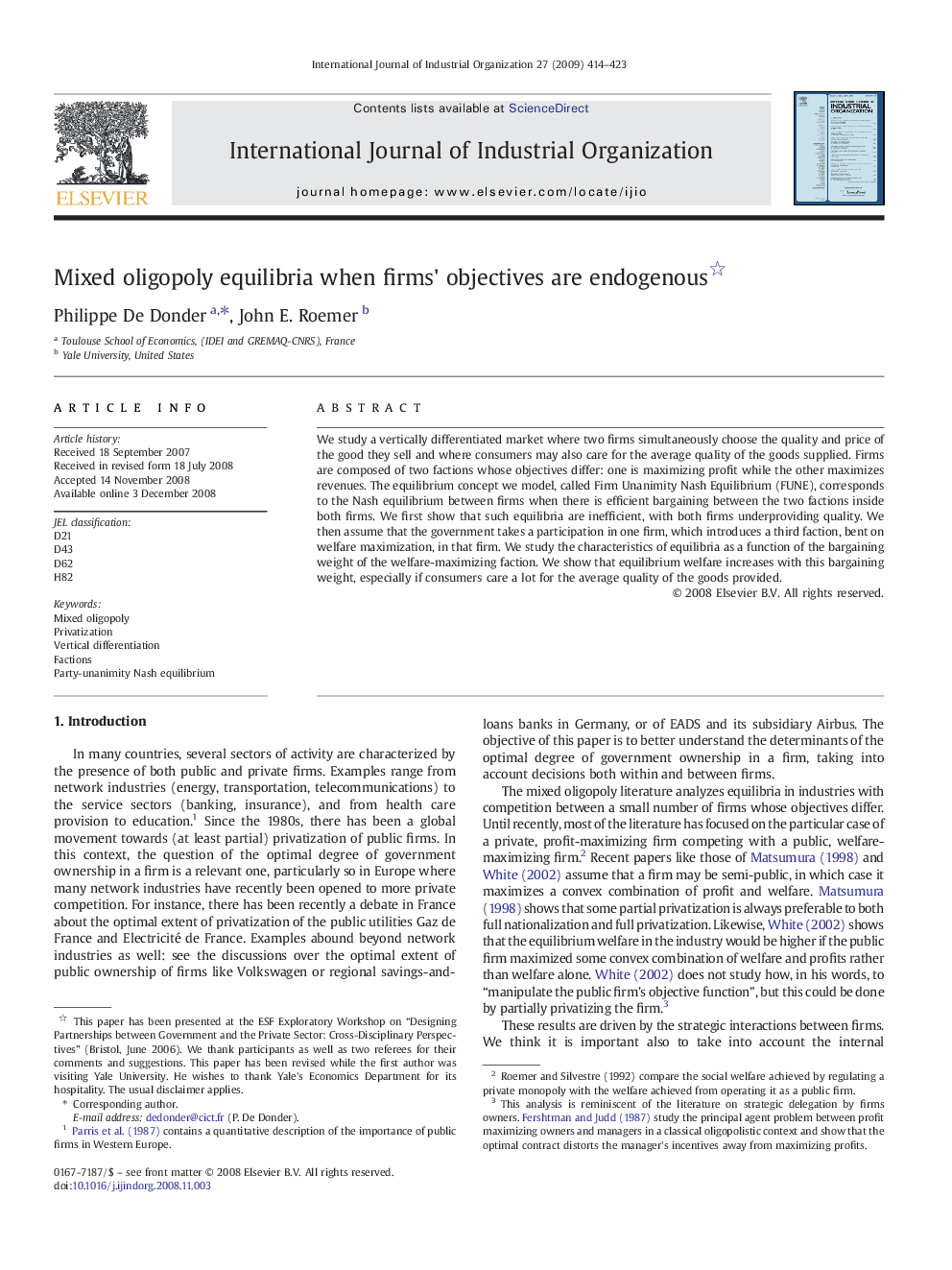| Article ID | Journal | Published Year | Pages | File Type |
|---|---|---|---|---|
| 5078607 | International Journal of Industrial Organization | 2009 | 10 Pages |
Abstract
We study a vertically differentiated market where two firms simultaneously choose the quality and price of the good they sell and where consumers may also care for the average quality of the goods supplied. Firms are composed of two factions whose objectives differ: one is maximizing profit while the other maximizes revenues. The equilibrium concept we model, called Firm Unanimity Nash Equilibrium (FUNE), corresponds to the Nash equilibrium between firms when there is efficient bargaining between the two factions inside both firms. We first show that such equilibria are inefficient, with both firms underproviding quality. We then assume that the government takes a participation in one firm, which introduces a third faction, bent on welfare maximization, in that firm. We study the characteristics of equilibria as a function of the bargaining weight of the welfare-maximizing faction. We show that equilibrium welfare increases with this bargaining weight, especially if consumers care a lot for the average quality of the goods provided.
Related Topics
Social Sciences and Humanities
Economics, Econometrics and Finance
Economics and Econometrics
Authors
Philippe De Donder, John E. Roemer,
